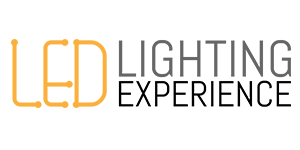Are LED Lights Threat to Our Eyes Or Health
LED lighting benefits, such as energy efficiency and durability compared to standard incandescent or fluorescent lights, are what makes LED lighting popular today. Predictions say that the LED market will grow over 10 times in the following decade, only to show that the demand for the modern lighting fixtures is on the rise. Even though the widespread use, from households to street lighting, there are still some misconceptions about risks associated LED lights.

Do LED Lights Pose a Health Risk
Let’s take a look at some concerns each of us have regarding LED lights.
Do LED lights cause blindness or damage to eyes?
Several researches have shown that blue LED light can indeed be harmful to our retinas, and to make it worse, once retina is damaged there is no going back since our immune systems can’t repair the damage. Poor retinal function can eventually lead to blindness so it is a serious issue.
A recent Canadian research shows that no there will be no damage from a distance of at least 30 cm. In order to prevent possible damage to your eyes, take breaks. There’s something called 20-20-20 break, and basically, give yourself a 20 second break every 20 minutes and try to see what’s going on 20 feet away.
Are LED lights harmful to health?
Before the rise of artificial lighting, main source of light was the sun and people use to spend their evenings in relative darkness. Now, the emerging technology has provided us numerous different light sources and we tend to use them to our disadvantage. One light being in the center of attention is the blue light. Even though its use during the day increases attention and mood, it can have bad effect during the night time. Primary source of blue LED lights are modern devices such as computers, laptops, smartphones, and household lighting. We can all agree that we use several, if not all of the above, during the day. A recent study shows that Americans check their phones 80 times a day, and now add the time we watch movies or series, work on our laptops or computers.
Every person on the planet is unique but we do have a similar biological clock. It doesn’t matter if you’re an early bird or you stay up late, the rhythm is about 24-hour long. Exposure to blue LED light lowers the level of melatonin in our bodies, which is later connected to sleep deprivation. Sleep deprivation can increase chances of diabetes, obesity, and even hart diseases and cancer.
Here are some advice from Harvard Medical School on how to protect yourself from blue light at night:
- Don’t look at screens at least two hours before you go to bed
- If you must use devices during night, get specialized glasses to filter the blue light
- Spend more time in bright light during the day, to help you sleep during the night
- Instead of blue lights, use dim red light for night lights
Conclusion
Lastly, what’s the final verdict? Just like any other thing in life we use, LED lights can be harmful and cause damage but they do not if they’re used moderately. It is all up to you.
